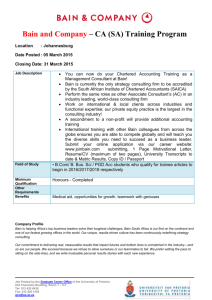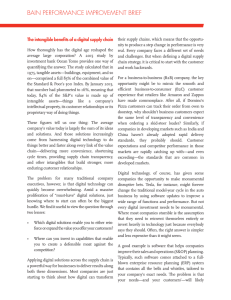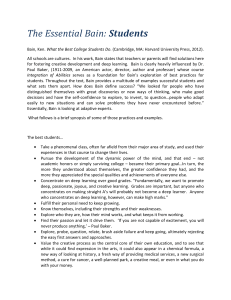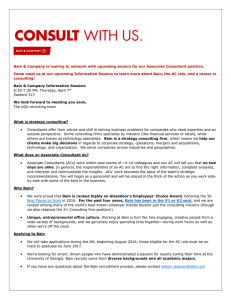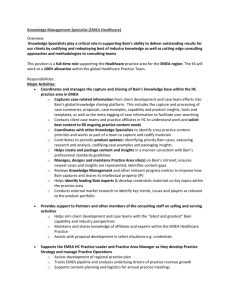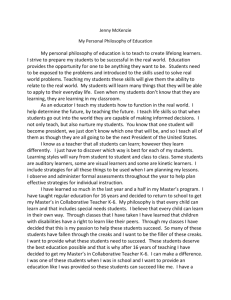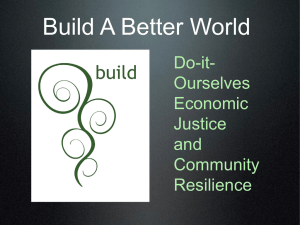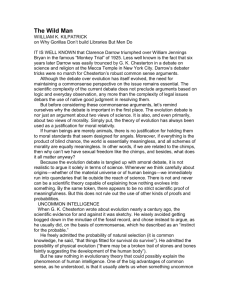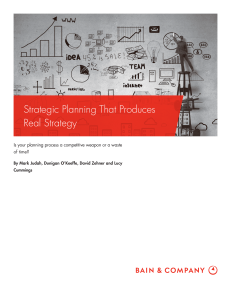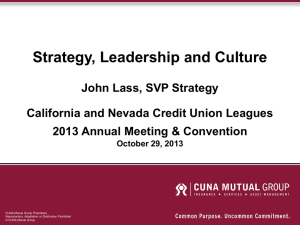There has appeared in our time a particular class of books and
advertisement
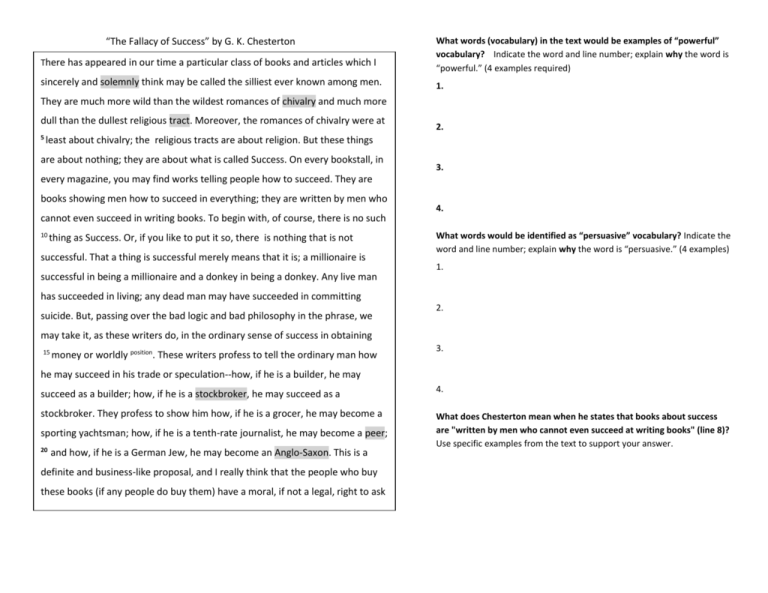
“The Fallacy of Success” by G. K. Chesterton There has appeared in our time a particular class of books and articles which I sincerely and solemnly think may be called the silliest ever known among men. What words (vocabulary) in the text would be examples of “powerful” vocabulary? Indicate the word and line number; explain why the word is “powerful.” (4 examples required) 1. They are much more wild than the wildest romances of chivalry and much more dull than the dullest religious tract. Moreover, the romances of chivalry were at 5 2. least about chivalry; the religious tracts are about religion. But these things are about nothing; they are about what is called Success. On every bookstall, in 3. every magazine, you may find works telling people how to succeed. They are books showing men how to succeed in everything; they are written by men who cannot even succeed in writing books. To begin with, of course, there is no such 10 thing as Success. Or, if you like to put it so, there is nothing that is not successful. That a thing is successful merely means that it is; a millionaire is successful in being a millionaire and a donkey in being a donkey. Any live man 4. What words would be identified as “persuasive” vocabulary? Indicate the word and line number; explain why the word is “persuasive.” (4 examples) 1. has succeeded in living; any dead man may have succeeded in committing suicide. But, passing over the bad logic and bad philosophy in the phrase, we 2. may take it, as these writers do, in the ordinary sense of success in obtaining 15 money or worldly position. These writers profess to tell the ordinary man how 3. he may succeed in his trade or speculation--how, if he is a builder, he may succeed as a builder; how, if he is a stockbroker, he may succeed as a 4. stockbroker. They profess to show him how, if he is a grocer, he may become a What does Chesterton mean when he states that books about success are "written by men who cannot even succeed at writing books" (line 8)? Use specific examples from the text to support your answer. sporting yachtsman; how, if he is a tenth-rate journalist, he may become a peer; 20 and how, if he is a German Jew, he may become an Anglo-Saxon. This is a definite and business-like proposal, and I really think that the people who buy these books (if any people do buy them) have a moral, if not a legal, right to ask for their money back. Nobody would dare to publish a book about electricity which3 Reread the essay; this time, highlight the evidence. literally told one nothing about electricity; no one would dare publish an article on botany which showed that the writer did not know which end of a plant grew in the 25 earth. Yet our modern world is full of books about Success and successful people which literally contain no kind of idea, and scarcely and kind of verbal sense. Chesterton, G.K. “The Fallacy of Success.” All Things Considered. John Lane Co., NY. 1909. Now read and annotate the following news article: “Secrets of the Most Successful College Students” Anne Murphy Paul – Time magazine – March 13, 2013 College-admission letters go out this month, and most recipients (and their parents) will place great importance on which universities said yes and which said no. A growing body of evidence, however, suggests that the most significant thing about college is not where you go, but what you do once you get there. Historian and educator Ken Bain has written a book on this subject, What the Best College Students Do, that draws a road map for how students can get the most out of college, no matter where they go. As Bain details, there are three types of learners: surface, who do as little as possible to get by; reasons that support Chesterton’s claim strategic, who aim for top with a real, rich education. Bain then introduces us to a host of reallife deep learners: young and old, scientific and artistic, famous or still getting there. Although they each have their own insights, Bain identifies common patterns in their stories: Make a personal connection to your studies. In her sophomore year in college, Eliza Noh, now a professor of Asian-American studies at California State University at Fullerton, took a class on power in society: who has it, how it’s used. “It really opened my eyes. For the first time in my life, I realized that learning could be about me and my interests, about who I was,” Noh tells Bain. “I didn’t just listen to lectures, but began to use my own experiences as a jumping-off point for asking questions and wanting to pursue certain concepts.” grades rather than true understanding; and deep learners, who leave Read and think actively. Dean Baker, one of the few economists to college with As Bain details, there are three types of learners: surface, predict the economic collapse of 2008, became fascinated in college who do as little as possible to get by; strategic, who aim for top grades by the way economic forces shape people’s lives. His studies led him rather than true understanding; and deep learners, who leave college to reflect on “what he believed and why, integrating and questioning,” Bain notes. Baker says: “I was always looking for arguments in Find a way to contribute. Joel Feinman, now a lawyer who provides something I read, and then pinpointing the evidence to see how it was legal services to the poor, was set on his career path by a book he used.” read in college: The Massacre at El Mozote, an account of a 1981 slaughter of villagers in El Salvador. After writing and staging a Ask big questions. Jeff Hawkins, an engineer who created the first campus play about the massacre, and traveling to El Salvador, mobile computing device, organized his college studies around four Feinman “decided that I wanted to do something to help people and profound questions he wanted to explore: Why does anything exist? bring a little justice to the world.” Given that a universe does exist, why do we have the particular laws of physics that we do? Why do we have life, and what is its nature? And given that life exists, what’s the nature of intelligence? For many of the subjects he pursued, Bain notes, “there was no place to ‘look it up,’ no simple answer.” Cultivate empathy for others. Reyna Grande, author of the novels Across a Hundred Mountains and Dancing with Butterflies, started Writing Prompt A: In a multi-paragraph essay, discuss the irony of reading the Time Magazine article “Secrets of the Most Successful College Students” along with Chesterton’s essay “The Fallacy of Success”. (Hint: Think about Chesterton’s purpose for writing - what would he have thought about the Time Magazine article?) writing seriously in her junior year in college. “Writing fiction taught Reyna to empathize with the people who populated her stories, an ability that she transferred to her life,” Bain notes: “As a writer, I have to understand what motivates a character, and I see other people as characters in the story of life,” Grande says. “When someone makes Writing Prompt B: Using evidence from both sources, write a multi-paragraph argument for or against the usefulness of a “self-help” success book. Clearly state your claim, and then refute and defend it. mistakes, I always look at what made them act the way they do.” Set goals and make them real. Tia Fuller, who later became an Writing Prompt C: accomplished saxophone player, began planning her future in college, Identify two (2) claims that Chesterton makes in his essay. Write a paragraph in which you identify the two claims and summarize how Chesterton develops those claims. Use textual evidence as support of your analysis. envisioning the successful completion of her projects. “I would keep focused on the light at the end of the tunnel, and what that accomplishment would mean,” she tells Bain. “That would help me develop a crystalized vision.”

